- Top
- Entertainment
- Roki Sasaki's early life and NPB career
Roki Sasaki's early life, childhood and career in Japan
Roki is a dramatic baseball player!
Roki Sasaki(佐々木 朗希 in kanji) was born on November 3, 2001 in Rikuzentakata City, Iwate Prefecture, Japan. He is the second son of three brothers and lived with his parents and grandparents in a family of seven. It is said that his name "Roki" was derived from his brother's favorite character in the Power Rangers Series "Hyakuju Sentai Gao Ranger," which was being broadcast at the time. In his childhood, Roki was an active boy who moved around outside, but he was a bit shy.
Roki started playing baseball in the third grade of elementary school when he joined the local Takata Baseball Sports Boys Club under the influence of his older brother. Ever since he started playing baseball, he had been practicing with his older brother and father. In March 2011, just before he was to advance to the fourth grade, the Great East Japan Earthquake struck.
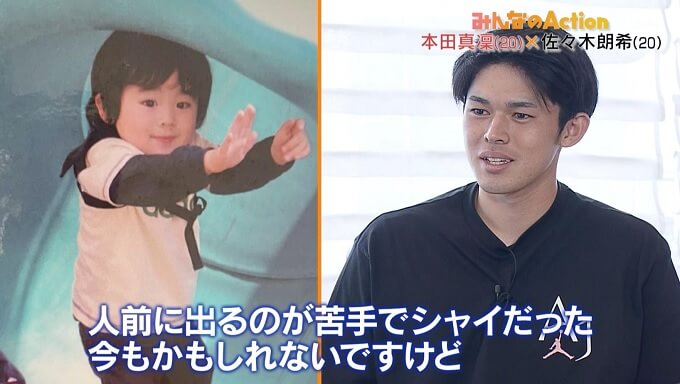
Roki's mother, Yoko, was in a neighboring town on business and was forced to leave the area due to flooding caused by the tsunami. Unable to see her children, she was finally able to leave by car at 5:00 the next morning. Yoko was in tears when she was reunited with her three sons, who had taken shelter and spent the night at a facility on higher ground. However, only four of the family members were together there, and she never met the other three (Roki's father and grandparents). On March 16, five days after the disaster, the phone rang and Yoko was told, "Your family has been found." Upon hearing the phone conversation, Roki was glad to hear that they had been found. While an adult would have immediately understood the true meaning of "found," it was still difficult for the then 9-year-old boy to comprehend the depth of the words.
His father Kota (37 years old), who loved and was loved by his three sons, died in the earthquake. His grandmother was later found, but his grandfather is still missing. The earthquake and tsunami swept away his family's home, forcing them to live as evacuees in a nursing home. They had difficulty in winning the lottery for temporary housing, and even when they finally won, the temporary housing was too small for the four of them to live in. Even after moving into temporary housing, Yoko, who had lost her husband, cried every day after her children went to bed. Later, Roki and his family moved to Ofunato City, where his mother's relatives lived, with support from relatives and others.
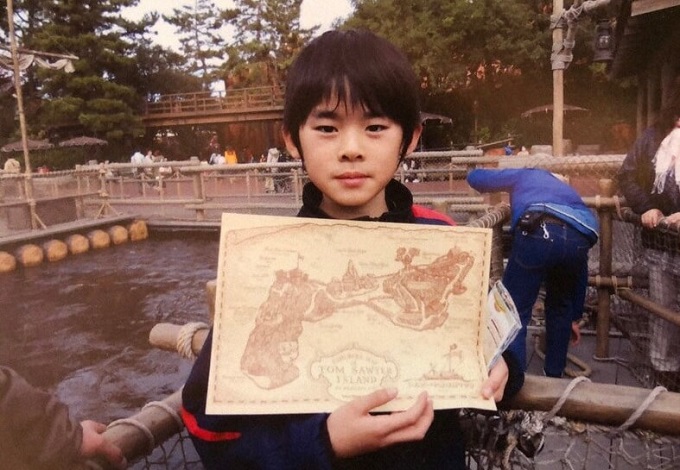
When he moved to a new city, Roki moved to a new school and joined the local "Inokawa Baseball Club. However, the schoolyard of the elementary school where the team practiced was lined with temporary housing, and there was not enough space to play baseball. Therefore, with the help of parents, coaches, and supporters, the team practiced on a weed-strewn riverbed near the school.
Team practice began around 4:00 p.m. after classes ended. Since there were no lighting facilities, the area was enveloped in darkness after a while. Parents painted the balls with orange fluorescent paint and illuminated the field with the headlights of several cars. Under these circumstances, Roki and his friends practiced hard.
About those days, Roki said, "I have a negative side, so there were times when I was sad, but baseball distracted me from my feelings. I had the most fun when I was playing baseball. Thanks to the time I could devote to baseball, I was able to do my best even when times were tough or difficult. I am glad I played baseball."
In 2013, when Roki was in the 6th grade, the first Rias League tournament was held at ZOZO Marine Stadium. It was a youth baseball tournament that started with the concept of "giving dreams to children who lost their grounds in the Great East Japan Earthquake. In the first tournament, Roki and his friends won the championship and became the first winning team. Although he did not pitch in the final game as a shortstop, he did pitch in a subsequent friendly game against a boys' baseball team from Chiba. Mr. Yamada, the producer of the tournament, said, "Roki wore glasses, and I had the impression that he was a very sensitive boy. Still, among us he was talked about as a good pitcher."
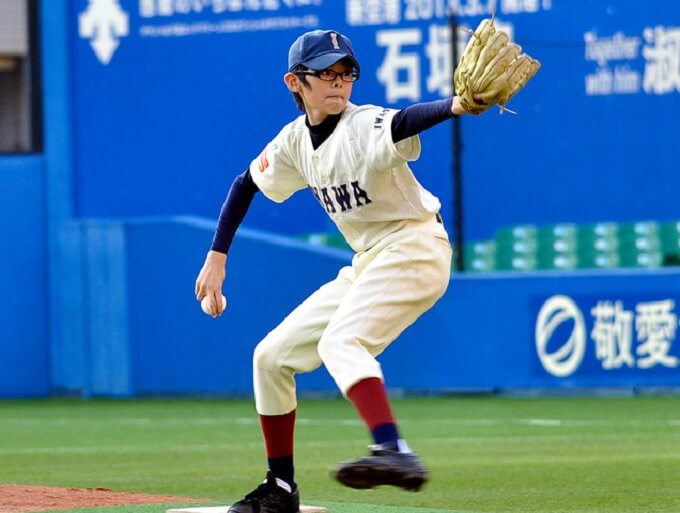
After graduating from elementary school, Roki went on to Ofunato Daiichi Junior High School. At the time (2015), the junior high school ground was still lined with temporary housing, and the baseball team practiced on an empty lot beside it. Nevertheless, he still practiced hard and carried the ace number from the fall of his sophomore year.
Mr. Shida, who was the head of the baseball club, spoke about those days: "Roki was outstanding in all sports tests. I was a member of the baseball team at Sendai University, and I saw seniors and juniors who became professional baseball players. Compared to those athletes, Roki was not inferior in terms of talent."
In addition, since junior high school, Roki had been pursuing baseball skills and searching for the ideal pitching form. About those days, Roki said, "I always liked Masahiro Tanaka, so I used to imitate him. As I grew up, I became thinner and taller, so I also imitated the form of Yu Darvish and Shohei Ohtani. I thought that professional baseball players would use their bodies correctly and that copying them would be a shortcut to getting better. When I was finally able to establish my own unique form, I was very happy about that, too."
Mr. Suzuki, who was the coach of the baseball team, "Roki was able to reproduce the ideal form on the mound by reading baseball technical books. However, his height grew more than 8 inches during his three years in junior high school. He had to deal with growing pains, and there were really long periods when he couldn't throw."
In addition to growing pains, Roki suffered a fatigue fracture of his hip just before entering the third grade of junior high school. The hospital that diagnosed him was, coincidentally, the same hospital in Aomori Prefecture where Shohei Ohtani, who also suffered from growing pains, went when he was in high school. Diagnosed with a fatigue fracture, Roki went through the same rehabilitation program as Shohei Ohtani, but was unable to pitch in his last summer tournament as a junior high school student.
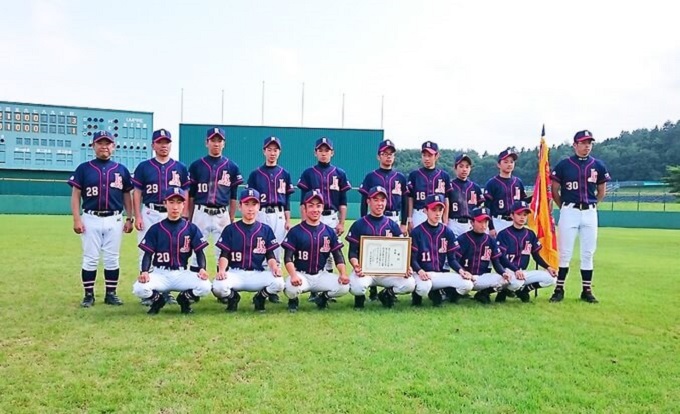
However, in the fall, when the junior high school students retired from the baseball team, there was a tournament in which they represented their region with K-balls. The K-ball is a ball made of rubber but the same size and weight as a hardball, as a preparatory step for the hardballs to be used in high school. After his back healed, Roki joined the local "All Kesen" team and participated in the national tournament. As the closer to close out the game, he threw 87.6mph, his fastest ever.
Roki talked about the first time he held a K-ball, "When I was in junior high school practicing for a K-ball tournament, I realized that the size of the K-ball fit my hands. Because of my large hands, the ball didn't fit my hands in elementary school or junior high school. As soon as I held a ball that suited me, my ball speed increased by 6 mph and my control, which had been poor, stabilized. I was so happy about that."
After the tournament, Roki had to make a big decision regarding where to go to high school. He had been approached by several strong baseball high schools. In particular, Hanamaki-Higashi High School, which had introduced him to the hospital and from which Shohei Ohtani graduated, had the highest regard for him. If he wanted to fulfill his dream of becoming a professional baseball player, Hanamaki-Higashi High School, with its understanding of his condition and the successful example of Shohei Ohtani, would have been a shortcut. However, Roki chose Ofunato High School. He really wanted to play in the Koshien Tournament with his Ofunato friends.
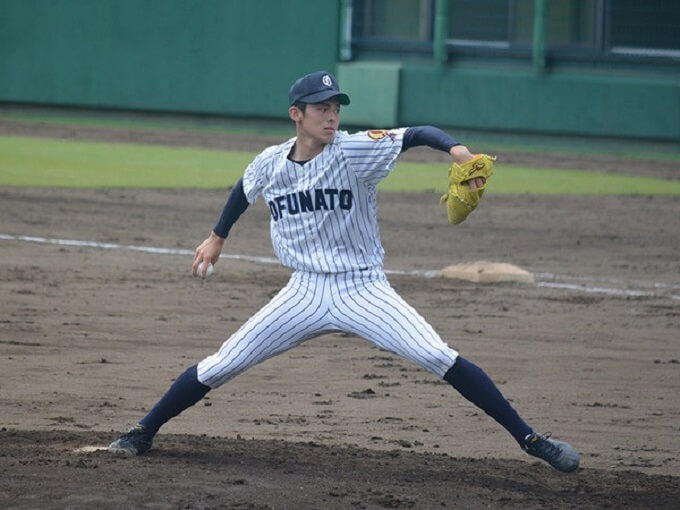
After entering high school, Roki started playing in official games as a freshman, and in his first game he threw a pitch that measured 91 mph. In the summer of his sophomore year, he raised his velocity to 95 mph. He also toyed with batters not only with his fastball but also with his breaking ball, leading his team to the top four for the first time in 16 years. In 2019, when he was a junior, he was selected as a candidate for the Japanese high school national team, and his pitch speed of 101 mph attracted a lot of attention from all over the country.
In the summer of his third and final year in high school, he hit 100 mph, tied for the fastest pitch speed ever by a high school pitcher in an official game. In the semifinals, he used his fastball to close out the game with 15 strikeouts, and the team advanced to the finals. However, since the semifinals and the final were to be pitched consecutively, the manager made the decision not to pitch for Roki. While this decision protected his future, it also ended the school's dream of winning the Koshien Tournament for the first time in 35 years. By chance, the final game was against Hanamaki-Higashi High School, which they defeated 2-12. However, in the draft held in October of the same year, four teams selected Roki with the first pick, and the Chiba Lotte Marines won the right to negotiate as a result of the lottery.
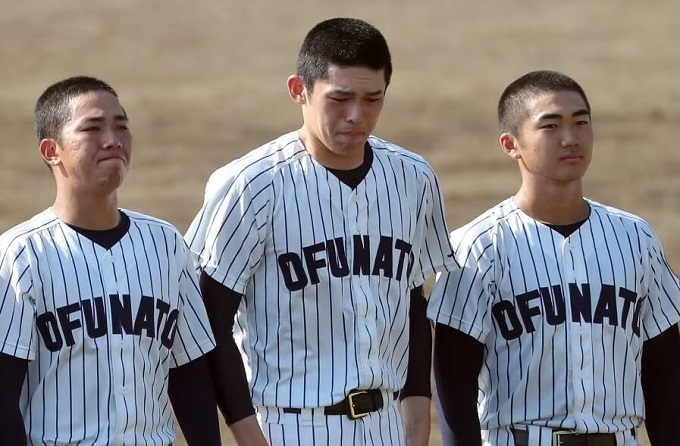
Roki did not pitch in any games in his first year in 2020, finishing the year with zero appearances. This was because the leaders decided that he was not yet physically fit enough to play in the pros. Roki's first year began with physical and strength development. In his second year, he was given opportunities to pitch, and his ability as a pitcher began to blossom from then on. He made his debut in an official game on May 16, giving up four runs in five innings, but he earned his first professional win in the following game on May 27. His record in his second year was 3-2 with a 2.27 ERA in 11 appearances.
In 2022, his third year, Roki achieved a feat that would become a turning point in his career. It was a perfect game against the Orix on April 10. He became the 16th player in 28 years to accomplish this feat, and at 20 years and 5 months old, he became the youngest player in professional baseball history to achieve this feat. He also tied the professional baseball record for most strikeouts in a game with 19, and set a new professional baseball record for strikeouts by consecutive batters with 13. After the perfect game, he ate sushi alone and reviewed the game on video.
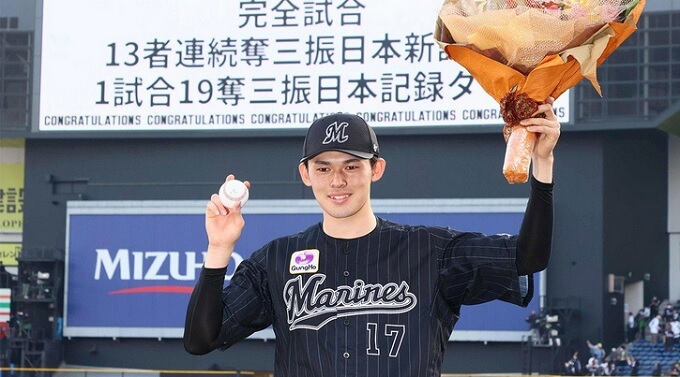
The following week, on the 17th, he took the mound against Nippon-Ham and pitched 17 consecutive perfect innings, including 14 strikeouts in 8 innings, a streak that had continued from his previous outing. However, since the batting lineup gave up zero runs on that day, manager Iguchi replaced him with the closer in the 9th inning to take care of his future. Therefore, Roki could not complete two perfect games in a row, the first time in the history of World Baseball.
Due in part to the aforementioned success, Roki was selected as a member of Japan's national team (Samurai Japan) for the 5th WBC to be held in 2023. He pitched as the starting pitcher in the First Round B game against the Czech Republic on March 11, the anniversary of his father's and grandparents' deaths. Before practice, he and the other players observed a moment of silence.
Japan's national team manager, Mr. Kuriyama, had decided in advance to have Roki pitch on this day, the day of the Great East Japan Earthquake. He said of Roki's start, "Roki is a pitcher who is going to aim for the top of the world. And the disaster will not disappear because of the passage of time, and there are many people who are still suffering. I hope that when they see him, even for a moment, they will cheer up and smile. I believe that he will pitch in his own way."
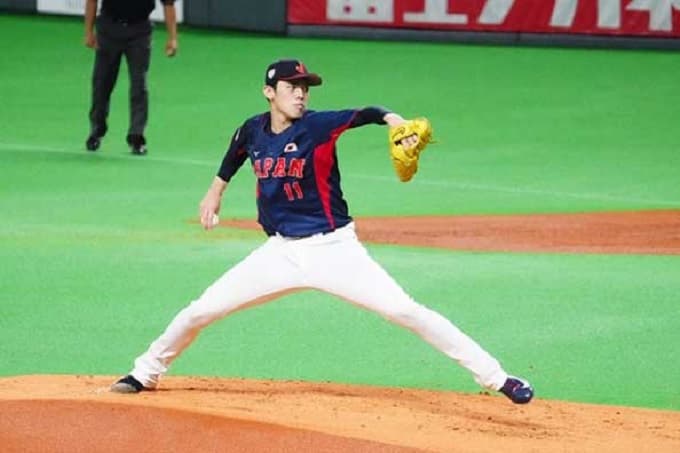
In this game, Roki pitched to a fastest speed of 101mph and gave up one run in four innings to contribute to the victory. He became the first starting pitcher to throw more than 25 pitches in the WBC with a 90% chance of throwing a fastball over 100 mph. He also started the semifinal game against Mexico, but was forced off the mound after Luis Urias hit a three-run homer in the fourth inning. Roki sobbed after pulling behind the bench, but later regained his composure and cheered on his fellow players on the bench. He and the rest of his teammates greeted and congratulated Munetaka Murakami when he hit a good-bye hit in the bottom of the ninth inning. In the end, the Japanese team won the championship, making it their first experience of winning a championship since elementary school.
After the WBC, Roki made his first start of the 2023 season, pitching six scoreless innings for his first win of the season. He continued to work his way around the starting rotation, and was selected as an All-Star for the second year in a row in fan voting. However, he was plagued by poor conditions after that, and his record fell to 7-4 with a 1.78 ERA in 15 starts. He was in the starting rotation the following year, 2024, for the third year in a row, and by June had made eight starts, posting a 4-2 record and a 2.18 ERA. Despite a period of poor conditions, he was 10-5 with a 2.35 ERA in 18 starts that year.
On November 9, after the 2024 season, Roki officially announced his intention to challenge MLB through the posting system through the team. He later agreed to sign with the Dodgers and said on his SNS, "It was a very difficult decision. I will do my best so that when I finish my baseball career and look back on it later, I will know that I made the right decision."
sources
- https://npb.jp/bis/players/31035151.html
- https://number.bunshun.jp/articles/-/853440
- https://www.yomiuri.co.jp/shinsai311/news/20230311-OYT1T50280/
- https://www.nikkansports.com/baseball/news/201910290000741.html
- https://jisin.jp/sport/2089924/
- https://www.asahi.com/articles/ASP396K5GP38UTQP01Y.html
- https://www.sanspo.com/article/20210528-KBTXVUYODBIXPGWVHL3XI5HP5E/
- Shohei Ohtani's early life
- Shohei Ohtani's high school days
- Shohei Ohtani's NPB career
- Yoshinobu Yamamoto's early life
- Shota Imanaga's early life
- Seiya Suzuki's early life
- Kodai Senga's early life
- Yuki Matsui's early life
- Shintaro Fujinami's early life
- Roki Sasaki's early life
- Tomoyuki Sugano's early life
- Shinnosuke Ogasawara's early life
- Munetaka Murakami's early life
- Kazuma Okamoto's early life
- Tatsuya Imai's early life